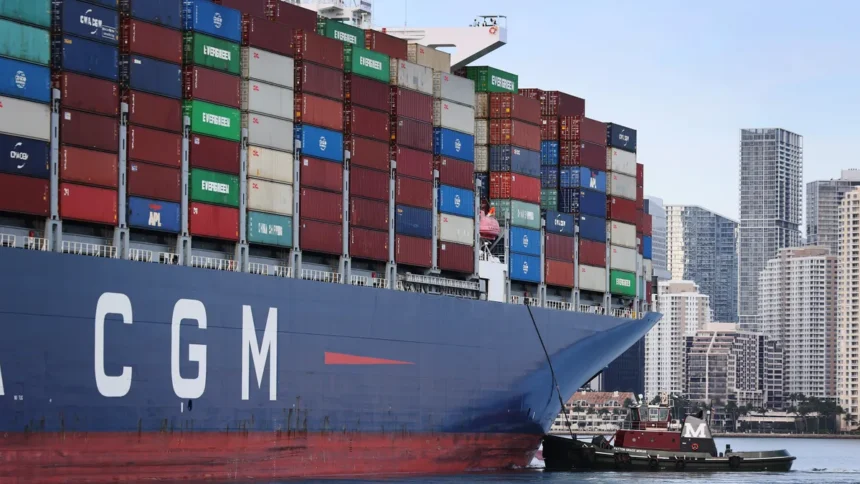On Friday, President Donald Trump signed an executive order temporarily restoring the de minimis trade exemption for small packages shipped from China. This provision has been widely used by Chinese e-commerce companies such as Temu and Shein, allowing goods valued at less than $800 to enter the U.S. duty-free.
Key Details of the Executive Order
The order specifies that the de minimis exemption will remain in effect until the Secretary of Commerce notifies the President that adequate systems are in place to process and collect tariff revenue on these items. This decision follows Trump’s previous suspension of the exemption, which was part of new tariffs that included an additional 10% tax on Chinese goods.
Implications for U.S. Customs
Removing the de minimis exemption was expected to overwhelm U.S. Customs and Border Protection (CBP) employees. Customs and Border Protection (CBP) employees, as the influx of low-value shipments would require formal processing. In 2024, CBP processed more than 1.3 billion de minimis shipments, highlighting the significant volume of goods entering the U.S. under this provision.
Impact on E-Commerce Companies
The de minimis exemption has facilitated a surge in cheap goods from China, with a 2023 report indicating that Temu and Shein are likely responsible for over 30% of these shipments. Critics argue that the provision gives an unfair advantage to Chinese e-commerce companies, leading to concerns over counterfeit and unsafe products due to minimal documentation and inspection.
Government Responses and Industry Adaptations
In response to the challenges posed by the de minimis exemption, the Biden administration proposed a new rule aimed at curbing its “overuse and abuse,” which would enhance CBP’s information collection requirements for de minimis shipments.
Both Temu and Shein have adapted their operations in the U.S. due to increased scrutiny. Temu has begun onboarding Chinese sellers with inventory at U.S. warehouses for faster shipping, while Shein has opened distribution centers in various states and established a supply chain hub in Seattle.
Conclusion
The recent executive order reflects the ongoing volatility in trade policy and its impact on e-commerce, as businesses navigate the changing landscape under Trump’s administration. The future of the de minimis exemption remains uncertain, with potential implications for both Chinese companies and U.S. consumers.














